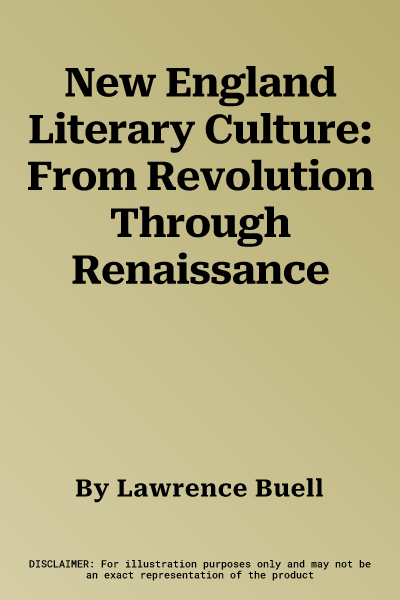Lawrence Buell
(Author)New England Literary Culture: From Revolution Through RenaissanceHardcover, 31 May 1986

Temporarily out of stock
Free Delivery
Cash on Delivery
15 Days
Free Returns
Secure Checkout

Part of Series
Cambridge Studies in American Literature and Culture
Part of Series
Cambridge Studies in American Literature & Culture
Print Length
529 pages
Language
English
Publisher
Cambridge University Press
Date Published
31 May 1986
ISBN-10
0521302064
ISBN-13
9780521302067
Description
Product Details
Author:
Book Format:
Hardcover
Date Published:
31 May 1986
ISBN-10:
0521302064
ISBN-13:
9780521302067
Language:
English
Location:
New York
Pages:
529
Publisher:
Series:
Weight:
879.97 gm